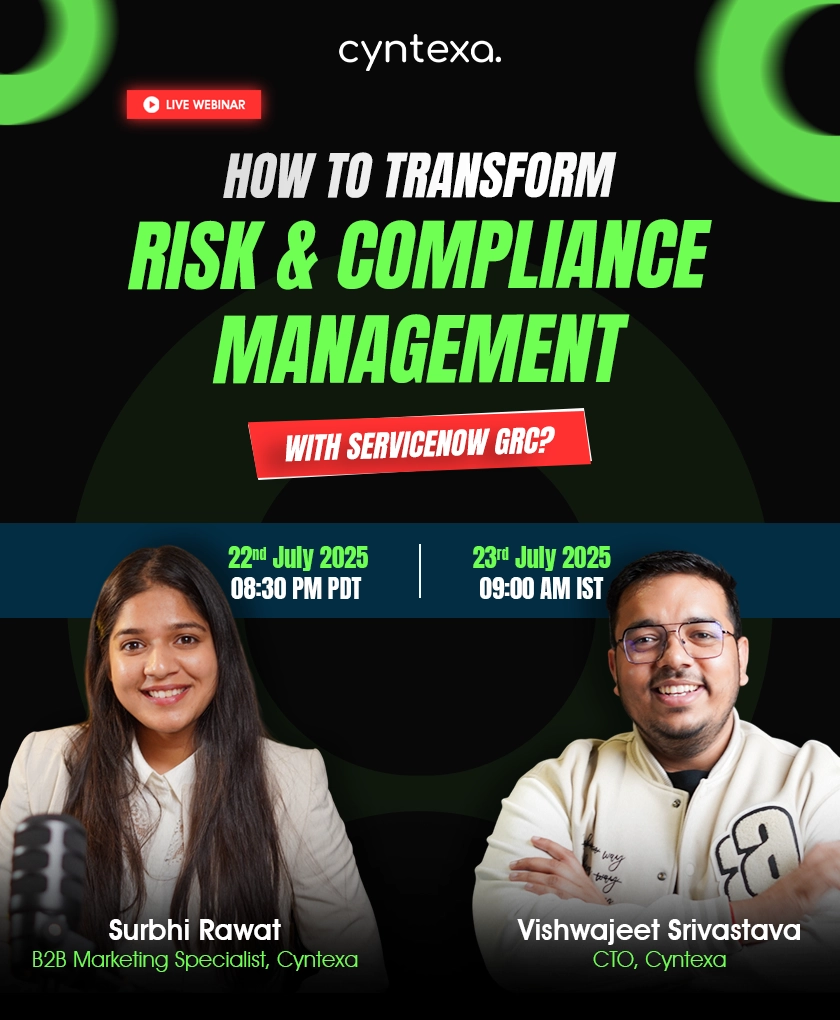The Ultimate Guide to Salesforce Contract Management: Features, Integrations, and Best Practices
Table of Contents
Take a road back down your memory lane and go back to the time when you were just about to start your business. What was the most important thing you did? Undoubtedly, it has to be not neglecting a proper contract, right?
This is because contracts are an essential part of running a business successfully. And one hap-hazard or poorly managed contract can take your business down hundreds of thousands of dollars. However, we understand that managing contracts is a tedious task. Piles of paperwork, some long lost documents, and loads of gone-by compliance deadlines. Whoof! Such a task.
But wait, what if your business could actually have a blend of one of the world’s finest CRM systems, Salesforce’s functionality, to effectively manage your contracts? Does this sound like a distant dream, far away from reality? But not anymore.
This comprehensive blog will help you understand Salesforce Contract Management thoroughly. Let’s begin with a brief introduction and see what it offers to the Salesforce ecosystem.
Salesforce Contract Management: At A Glance
In a complex business landscape like today’s, a firm contract and effective contract management are not just a luxury for businesses but rather a necessity. This not only protects your business’s interests but also helps as a barrier to potential risks. “Over 55% to 70% of organizations are currently struggling with effective contract management systems, which can lead to revenue loss, challenges in accessing contracts, and agreement errors.” (Source: WebinarCare)
Owing to this, Salesforce has introduced Salesforce Contract Management. This is a digitally operated tool built on top of the CRM that allows its users to create, review, and manage essential business-related contracts.
Let’s move on to discovering some of the features of Salesforce Contract Management.
Key Features of Salesforce Contract Management
There is an excellent suite of features that are offered by Salesforce Contracts, such as:
- Creating and Customizing Contracts: The platform allows its users to create contracts using its highly customizable templates. This feature allows Sales representatives to streamline the contract creation process efficiently and ensure utmost consistency throughout the contract lifecycle.
- Contract Lifecycle Management: Salesforce allows its users to track their entire contract lifecycle within the CRM platform. This digital tool facilitates all negotiations, real-time updates, and centralized accessibility. Users are also allowed to define the lifecycle for a specific contract type, which enables them to control the actions available at each stage of a contract.
Quite often, a CLM is integrated with CPQ (configure, price, quote) to assist sales teams in navigating the challenges of manual quoting processes. This integration automates quoting in association with pricing and routes the approval workflow processes. Though CPQ alone offers a suite of features that can be beneficial, the integration with a CLM solution has a much greater impact on the overall management of contracts. Some of the benefits of CPQ and CLM integrations are mentioned here:
- Leads to enhanced sales productivity
- Provides a unified customer experience that eventually leads to an increased adoption rate.
- Reduces the risk of human-made errors.
- Automated Workflows: The tedious process of contract renewals, approvals, and other checks can be easily automated. This will minimize the risk of errors and delays in the contract processes. Plus, there is also a great functionality of proactive alerts and notifications that will ensure that the sales reps don’t miss out on any critical dates.
- The Various Integrations: The platform offers good integration capabilities with multiple Salesforce clouds for contract management. Starting right from familiar clouds, the sales team can get centralized access to data and the current contract status without having to leave the platform even once. Moreover, the E-signature integration capabilities also add a dash of convenience to the document signing and reviewing process.
- Salesforce Contracts APIs: This feature enables seamless orchestration of Salesforce Contracts application functions with industry-specific use cases through APIs.
- Document Version Management: This feature simplifies the process of maintaining records accurately and keeps track of all the changes that may have occurred during the contract’s lifecycle intact.
Thus, these outstanding features offered by Salesforce Contract Management can help businesses to efficiently streamline their contract management processes, enhance collaboration, and improve overall efficiency within the Salesforce ecosystem.


Benefits of Using Salesforce Contract Management
Here are some of the benefits businesses can experience after using Salesforce Contract Management;
- Improved Efficiency and Productivity: As all the workflows get automated, the sales reps and the legal team don’t have to perform repetitive tasks. This, in turn, improves their efficiency and productivity, allowing them to focus more on initiating other fruitful business strategies.
- Enhanced Collaboration and Communication: The Salesforce ecosystem is regarded for its centralized data access, which functions globally. This enables users to avoid a situation of data silos, along with enhancing the communication and collaboration between the parties part of the contract lifecycle.
- Better Compliance and Risk Management: Contract Management safeguards the business from potential threats. This can range from proactive alerts for terms that are about to expire to valuable insights that can help the user adhere to the respective compliance within the desired time frame.
- Enhanced Customer Experience: Customer experiences are also highlighted as they are provided with extraordinary, streamlined workflow processes and communication channels. The work isn’t hampered by interruptions, helping the user stay better connected with its customers.
How to Manage Contracts in Salesforce?
Each contract has to go through several phases to be completed, and this can be labeled as a “contract lifecycle.” There are multiple components and stages of creating a contract, which begins with conceptualizing it, adhering to the compliance and regulatory needs, and eventually being procured by the parties associated.
When we talk about managing and maintaining compliance and regulatory requirements, this falls under the essential part of managing contacts in the entire lifecycle. But before we look at how to manage contracts in Salesforce, let’s understand some of the key terminologies associated with contract lifecycle management in Salesforce.
- Contract Types: As the name suggests, these are the different types of contracts that the team can efficiently manage. As each contract has a distinct lifecycle.
- Contract State Model: The model for contract state determines the lifecycle of each contract type, governing the actions and operations available to users at each stage.
- Contract Authoring: Allows users to manage contracts from start to finish online easily. This includes authoring, reviewing, negotiating, and approving contracts.
- Contract Management: This enables users to manage contracts online effectively, even if they are with different stakeholders.
- Contract Performance: In order to measure the contract performance and service-level agreements (SLAs), Contract Performance is there.
- Contract Risk Management: Alerts and reminders are set up in Contract Risk Management to manage and mitigate risk. They are also helpful for altering contract breaches and expiry dates.
How Does Contract Management Actually Work?
Salesforce Contract Management operates by combining a specialized contract lifecycle management (CLM) system with the Salesforce CRM platform. This integration enables organizations to handle contracts within the Salesforce ecosystem better. Here’s a detailed overview of how Salesforce Contract Management functions:
- Launching The Process Of Contract Creation:
The Sales representatives can kickstart their contract creation directly from Salesforce by using customizable templates offered by the platform. The templates presented here have already been approved, which ensures consistency across all contracts. Moreover, users can easily create custom objects in Salesforce. This mainly includes clearly indicated fields like Contract Type, Status (e.g., Draft, Active, Expired), and Page Layouts.
- Channeling The Workflows Through Automation:
Contracts follow predefined approval workflows with automated routing and notifications to minimize delays. Key stakeholders, such as legal and finance teams, can review and approve contracts within Salesforce, helping to enforce consistent processes and reduce the risk of missed deadlines and non-compliance. Collaboration between stakeholders also becomes easier, simplifying the approval process.
- Significant Integrations:
Salesforce Contract Management provides a centralized, cloud-based repository for storing all contracts and related documents. The centralized system serves as a single source of truth for contract data, reducing the risk of discrepancies and improving overall visibility. Contract data is automatically synced between Salesforce and the CLM system, eliminating the need for manual updates.
Integrated e-signature solutions allow contracts to be signed electronically, expediting the execution process. Integrate Salesforce with document management systems like Salesforce Content, SharePoint, or other third-party systems for efficient document storage and management.
- The Review and Analysis Cycle:
Users can create and manage contract amendments as related records to the original contract, tracking changes and approvals. They can also utilize Salesforce Analytics (Einstein Analytics) for advanced analytics and insights into contract performance.
- Security And Compliance Check:
The users can protect sensitive contract information by granting access only to authorized personnel. Ensure all contract data is managed and stored in compliance with GDPR and HIPAA regulations.
Thus, businesses can revolutionize their operations by harnessing Salesforce’s full potential for contract management. Moreover, having a feedback mechanism can improve management processes.
Best Practices for Salesforce Contract Management
Here are some of the Salesforce contract management best practices that can significantly enhance compliance, overall efficiency, and effectiveness of contract management.
- Keenly Assess Your Needs:
The first and foremost step is to assess your needs and objectives keenly. If the aim of what one wants to achieve from Salesforce Contract Management is clear, then all the processes also get smoother. Plus, it is equally important to make sure that the stakeholders are also kept informed and connected to collect the extensive requirements for managing the contracts.
- Standardize Contract Templates:
One has to ensure that all the contracts are laid out uniformly. Thus, to ensure this happens, they will have to standardize the contract templates. This will also boost their work efficiencies and avoid any complicated legal issues. Moreover, a standardized contract template can also help meet compliance and regulatory standards without compromising.
- Ensure Document Management Is Enabled And Intact:
Documents are essential for creating and maintaining a contract; thus, it is vital to ensure that Document Management is enabled. Document management can help store, manage, and integrate documents. Also, from a controller’s point of view, document management keeps a close track of all the changes and updates in the documents essential for contracts.
- Regularly Audit and Monitor:
Conducting regular checks and audits is always helpful. This directly ensures that all the processes necessary for managing the contacts comply well with legal and regulatory requirements. Along with that, regular monitoring can also help in the early detection of any potential threats in the contract management lifecycle.
- Integrate with E-Signature Solutions:
Salesforce has a versatile feature of integrating with an e-signature solution to facilitate faster and hassle-free contact execution. This integration helps significantly reduce the turnaround time of the contacts and provides clear visibility and tracking services. Moreover, it also adds security features. Thus, integration with E-signature solutions is a non-negotiable factor.
- Provide Training To Sales And Legal Teams:
Provide adequate training to your business’s Sales and Legal team regarding the technicalities and functionalities of Salesforce Contract management. This will boost their morale and help them use the tool much more efficiently.
Thus, by following these best practices, businesses can seamlessly optimize their contract management processes.


Conclusion
The businesses’ success in today’s dynamic world relies heavily on effective contract management. Therefore, combining one of the world’s best CRMs with contract management software can bring significant benefits to organizations. Salesforce Contract Lifecycle Management offers all these advantages and more. Thus, implementing this can establish a strong foundation for efficient contracting practices, leading to long-term success for businesses. If you need further clarification on implementing Salesforce contract management, feel free to consult with our Salesforce implementation consultant.
Are you ready to unleash the full potential of your contracts?
Get in touch with us today to explore how a Salesforce Managed Service Provider can help tailor a solution to meet your specific needs and empower your organization to achieve its contracting goals.
Don’t Worry, We Got You Covered!
Get The Expert curated eGuide straight to your inbox and get going with the Salesforce Excellence.
AUTHOR
Shubham
Service Cloud, Salesforce Managed Packages
With over 5 years of experience, Shubham specialize in curating solutions on Salesforce Service Cloud, Nonprofit Cloud, Consumer Goods Cloud, Managed Packages, and ServiceNow ITSM. He designs and implements end-to-end service solutions that improve operational workflows and ensure seamless integration across enterprise systems. Shubham’s expertise lies in creating secure, efficient, and agile platforms tailored to unique business needs.


Cyntexa.
Join Our Newsletter. Get Your Daily Dose Of Search Know-How
Frequently Asked Questions
Contracts are typically enabled by default in most Salesforce setups. If you can't find the "Contracts" tab, please verify your user permissions and contact your Salesforce administrator for assistance.
- Go to Setup and enter "Contract Type" in the Quick Find box.
- Select "Contract Type" from the search results.
- Click the down arrow next to the contract type you want to delete, and then click "Delete".
Remember that you cannot delete a contract type if one or more contracts are associated with it.
Salesforce allows for extensive customization, enabling the creation of custom fields, workflows, and reports to match specific business processes and contract types.
Salesforce implements strong security measures to protect your data, such as user permissions and data encryption. It also regularly conducts security audits.









